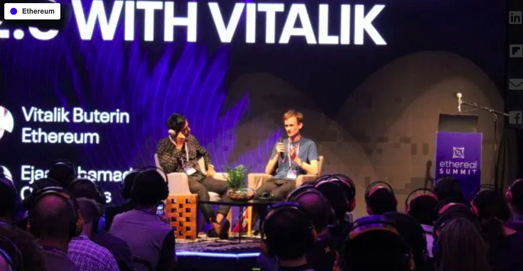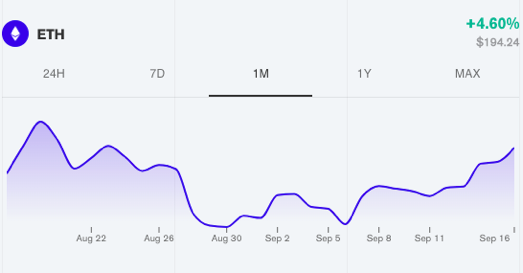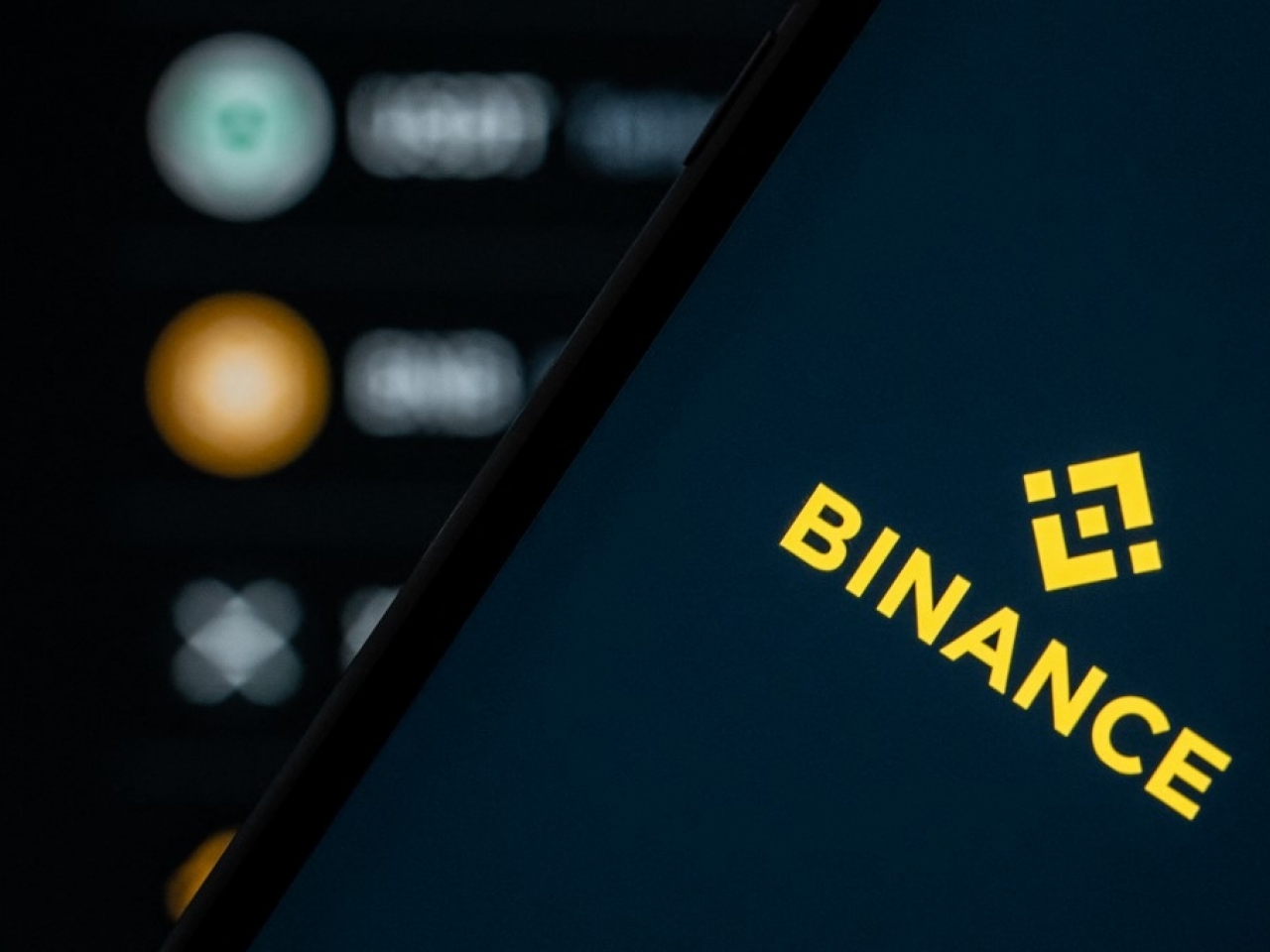How does Vitalik evaluate Ethereum Eco-Privacy, DeFi and Ethereum 2.0?
At the Ethereum conference in Tel Aviv, Israel, Ethereum co-founder Vitalik Buterin discussed the development of the entire Ethereum ecosystem in today's Q&A session.
When talking to Ejaaz Ahamadeen, chief asset architect at Digital Assets (Digital Assets from the Brooklyn incubator ConsenSys, which also funds decrypt), V God discussed the huge benefits of privacy tools in recent weeks, decentralized finance The development potential of (DeFi) and the roadmap for Ethereum 2.0.
Regarding the first development phase of Ethereum 2.0, phase zero, V God stated that everything except the problems that occurred during the security audit process was “finalized”. The next step is to ensure that clients can maintain a large public network. "

- A picture to understand the world currency and market
- Is DeFi a flash in the pan? Fund big coffee Pomp believes that automation finance is the future
- ETH breaks the daily resistance and leads the mainstream currency
Image source: DECRYPT
The process that V God refers to is called Eth2Beaucoup, which involves 7 Ethereum 2.0 clients (immediate blockchain platform upgrades) connected to each other and running simultaneously. This is considered an important milestone in the development phase of Ethereum.
"The next step is to make sure they can maintain a large public network. We are talking about hundreds of thousands of validators that may have gathered a large number of transactions," V said.
The conversation also involved rewarding validators who were willing to lock a large number of Ethereum locks on smart contracts to help verify transactions on the network. But critics say that Ethereum 2.0's return is too low to motivate the verifier to maintain network operations.
V God said, "There is a lot of misunderstood information. Someone throws 1% of the statistics everywhere. In fact, in the case where all validators are involved in the mortgage, the highest annual reward is 1.7%. Only a small number of validators participate in the mortgage, so the reward will increase a bit."
V God refers to the interest earned by the validator on their Ethereum mortgage. The interest rate is related to the number of validators on the network. If everyone becomes a verifier, then everyone will receive a mortgage interest of 1.7%. But if only one percent of the network is a validator, the rate of interest earned by these validators will rise to 17%. But V God added that the specific figures are still under discussion.
Better privacy on the blockchain
When asked about the latest developments in privacy technology (especially the zero-knowledge proof used by the privacy currency Zcash, etc.), V God said: "In the past three weeks, Zk-SNARKs have made great progress, but many people have not yet Realize this."
V God mentions Plonk, a new approach to creating zero-knowledge proofs that will be introduced by the Aztec Protocol, a project supported by ConsenSys that focuses on introducing privacy technology into Ethereum in October. This technology will reduce the complexity of creating zero-knowledge proofs, making it easier for more people to use it. V God said, "This means that thousands of people will be easy to get involved." The prospect of DeFi
 Not surprisingly, V God is also passionate about the emerging decentralized financial world. After all, DeFi is built on top of Ethereum.
Not surprisingly, V God is also passionate about the emerging decentralized financial world. After all, DeFi is built on top of Ethereum.
V God said, "In principle, I am very excited about the potential value of DeFi. Anyone in the world can use this system so that they can pay each other and independently choose the financial risks they can afford. It is a very powerful idea and an area that many people cannot reach now."
He then suggested that DeFi could provide a way to prevent blockchain founders from running after raising a lot of money. “Public interest projects” refer to the fact that users pledge part of their own tokens and use the interest generated by these tokens to raise funds for project development. Just like a DeFi version of ICO (DeF-ICO).
The key difference here is that the capital flow (the interest generated from the mortgage token) obtained by these projects is smaller and more stable, and whether the project capital flow continues depends on whether the project can achieve continuous success, rather than a large amount of funds in the previous period. . If a project starts to look a bit like a scam, investors can choose to withdraw their money and the project will receive less money.
"This is not to bring the most benefit to yourself. This is to get the proceeds and put the proceeds into the projects you support," V God added. "This really solves many of the frauds we have encountered in the ICO field." problem."
But V God quickly pointed out the pain of DeFi's growth: there are clear centralization backdoors and oracles.
Centralizing the back door means that when the centralized party completely controls all the things in the decentralized application, such as the recent events in Compound. At the same time, the oracle (Oracles) is the way the blockchain accesses real-world data. (# Block Blocks BeatBeats Note: Smart contract security company Zeppelin conducted a security audit of the decentralized lending platform Compound, exposing some of the common risks in the DeFi project, including centralization that could lead to theft and manipulation of platform assets. Risks, as well as unreasonable smart contract vulnerabilities, may cause miners to generate aggressive behavior, and liquidation incentives may in some cases increase the likelihood of borrowers going bankrupt. For this second-largest DeFi with locked assets of more than $100 million Project, these questions should not be underestimated.) V God said: "If the prophecy machine is set by one person, then he can set the price according to his own wishes, carry out liquidation and running, and then steal a big way in this way. With the money, then decentralization is actually useless."
But he added that good progress is being made in exploring decentralized oracles. (Many projects are integrating Chainlink, and Compound is also developing its own decentralized oracle.)
end
Ahamadeen ended the conversation by asking V God about his love of World of Warcraft. On V God's own page, he talked about his love of the game and said that the game developer of Blizzard Entertainment had made some changes to one of his character settings. V God said, "I cried and fell asleep. I suddenly realized the terrible consequences of the centralization service."
Last month, Blizzard Entertainment released the original version of the game, the World of Warcraft Classic, which was updated 15 years ago, which is a bit like the Ethereum classic. When Ahamadeen asked V God, things have returned to their original appearance. Will he return to his first love?
V God replied: "If World of Warcraft moves to Ethereum, I will consider it."
Original title: Vitalik Buterin speaks out on privacy, DeFi and Ethereum 2.0
Original source: decrypt-Tim Copeland
Original translation: Block rhythm BlockBeats-HQ
We will continue to update Blocking; if you have any questions or suggestions, please contact us!
Was this article helpful?
93 out of 132 found this helpful
Related articles
- 500,000 new ASIC mining machines are sturdy, BTC's entire network is breaking 100EH/S just around the corner
- What role should the IEO start in the second half?
- Viewpoint | The market is just around the corner, the bear market is coming to an end?
- Interview with FISCO BCOS Zhao Zhenhua: Meeting the distributed business with open mind
- ConsenSys Announces Decentralized Financial Project "Codefi" to Promote Ethereum Enterprise Adoption
- Cryptographic currency lending: Innovation or emulation?
- Defeat the dry season: Will the miners' northward move be smooth in 2019?






